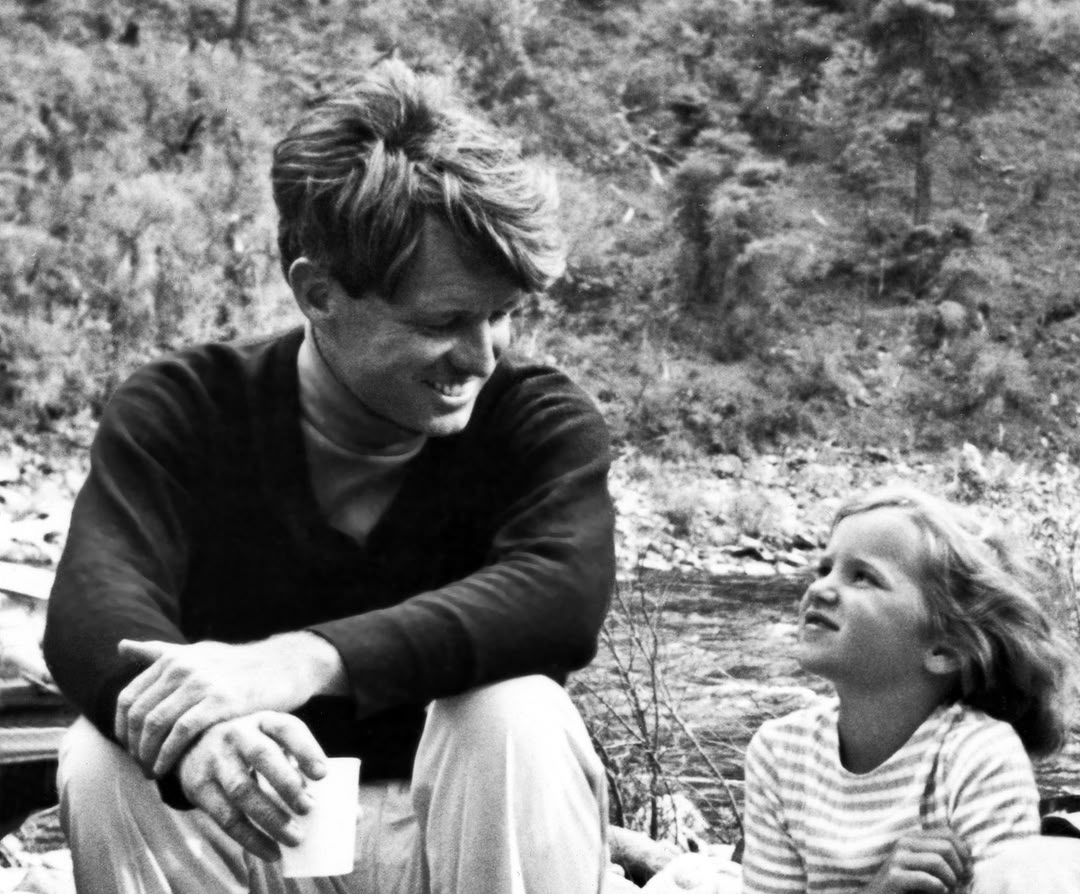This week marks what would have been the 100th birthday of my father, Senator Robert F. Kennedy. A century later, his life-and his legacy-have never been more timely. My father ran for president in 1968, during a turbulent period in our country’s history. The war in Vietnam raged, and violent unrest tore through our nation’s cities and campuses. Daddy stood alongside civil rights leaders like John Lewis and fought for the fundamental rights of all people, a struggle that revealed both the best and the worst of American society. Today, our nation is engaged in a similar struggle. Masked ICE agents target teenagers, parents and longtime community members. Immigration jails are overflowing, subjecting people to abuse behind bars. The battle over SNAP benefits has left many families questioning where their next meal will come from. Our elected leaders and officials regularly trade barbs on the public stage, deepening divisions instead of healing them. While our current moment may feel uniquely fraught, it is not without precedent. We have faced such crises of conscience before. What history teaches us, what my father’s legacy teaches us, is this: We can emerge stronger when we choose moral courage over political expediency, and human dignity over partisan division. If he were alive today, I think my father would call on everyday Americans to act. He would remind us that every individual has an opportunity and an obligation to fight for a better world, one that is defined by compassion and moral courage. For my father, moral courage meant standing up for the vulnerable. Whether he was working as a New York senator, attorney general, or campaigning for president, my father was dedicated to advancing social justice and helping impoverished communities. He stood alongside César Chávez, advocating for better migrant worker housing and federal minimum wage protections for farmworkers. He championed the Civil Rights Act of 1964, working tirelessly to get the landmark legislation passed. He walked through the Mississippi Delta and Appalachia to shine a light on children who were starving, urging the expansion of anti-hunger programs. I was only 8 when my father was assassinated. The daddy that I remember wasn’t just a political leader-he was my hero. He was patient and fair. He comforted me when roughhousing with my older siblings left me in tears. He welcomed us-his sprawling, tussling crew of kids-to his office in the Department of Justice. He encouraged me, and all of his children, to listen and to love well. The night that Dr. Martin Luther King Jr. was killed, my father gave an impromptu speech in Indianapolis. Speaking to a heartbroken audience, he said: “What we need in the United States is not division; what we need in the United States is not hatred; what we need in the United States is not violence or lawlessness; but love and wisdom, and compassion toward one another, and a feeling of justice toward those who still suffer within our country.” Today, 100 years after my father’s birth and more than 50 years after his death, there are many who are still suffering in our country. I’ve met them, and I’ve heard their stories: Pregnant women locked in ICE facilities, subjected to medical neglect and abuse. Teenagers separated from their families, sent thousands of miles from home. Asylum seekers desperate for a better future, only to be met with derision and detention. To truly honor my father’s legacy, we must take a step back from our partisan politics and consider the people who are impacted by our policies. We must have the moral courage to reach across the aisle. Perhaps most importantly, we must listen. We must create space for genuine dialogue, especially when we disagree. Listening does not mean legitimizing hate. It means recognizing the humanity in others, understanding the pain and fear that so often fuel division and working to heal the wounds that drive people apart. My father believed in service to others. He put people before politics. He was willing to listen, and he was willing to learn. These principles are timeless, and they’re just as important today as they were in the 1960s. Today, let’s follow in his footsteps. Kerry Kennedy is a human rights activist, lawyer and president of Robert F. Kennedy Human Rights. The views expressed in this article are the writer’s own.
https://www.newsweek.com/remembering-my-father-senator-robert-f-kennedy-opinion-11089699
Remembering My Father Senator Robert F. Kennedy | Opinion


